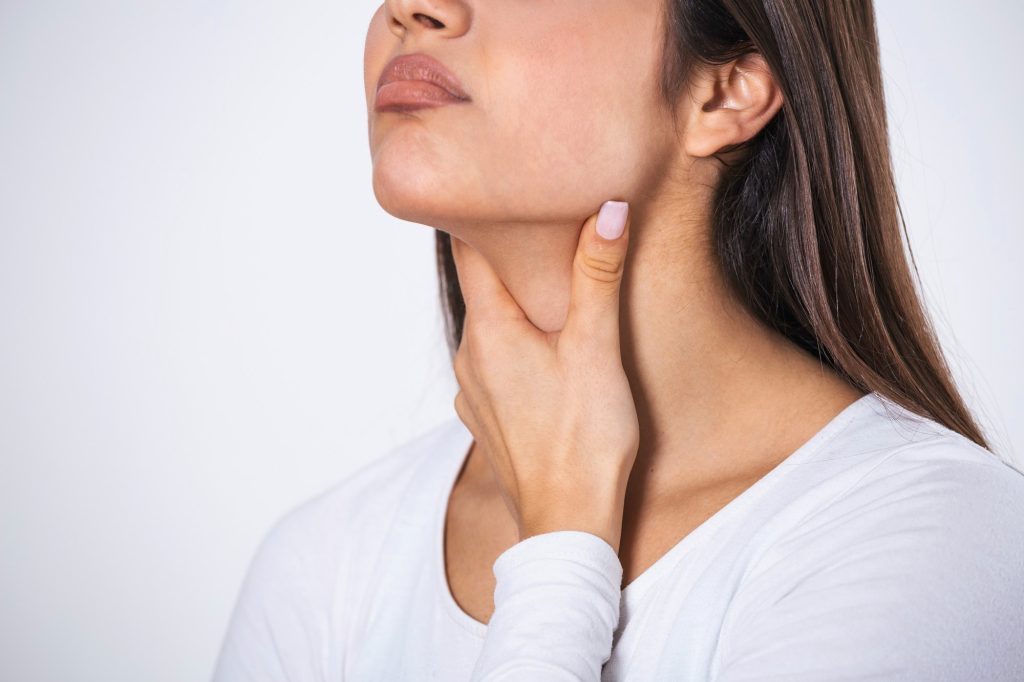What is Thyroid?
Normally, when we use the term “thyroid” … most of us assume it to be some metabolic disorder. But thyroid is a butterfly-shaped, bilobed gland located in our neck region. It is an endocrine gland in nature which produces thyroid hormones and calcitonin. These are responsible for
- metabolic regulation,
- growth, and
- overall development, of a human being.
Disorders associated with Thyroid Gland
Diseases of the thyroid gland majorly affect women and are reported in 5% population in total. Since thyroid is the centre of all metabolic activities; its disorders have a vast variety of symptoms. The most common disorders of the thyroid include,
- Hyperthyroidism (thyrotoxicosis),
- Hypothyroidism, and
- enlargement of the thyroid (goitre or thyroid nodule).
Other disorders include Grave’s Disease, Hashimoto’s Thyroiditis, Subacute (de Quervain’s) Thyroiditis, Post-partum Thyroiditis, Iodine-associated Thyroid Disease, Simple and multinodular goitre, Congenital Thyroid Disease and Thyroid Cancer.
Thyrotoxicosis (Hyperthyroidism)
This comprises a wide range of symptoms occurring due to high levels of thyroid hormone in the blood. Some of them are
- weight loss,
- shivering,
- profuse sweating,
- palpitations,
- difficulty in breathing,
- tiredness,
- irritability, and
- increased emotions.
Hypothyroidism
The symptoms here appear due to lowered levels of thyroid hormone in the bloodstream.
- Gain in weight,
- inability to bear cold,
- fatigue,
- dryness of skin and hair, and
- heavy/prolonged menstrual flow
Thyroid lump/swelling
This can broadly be of three types:
- solitary nodule,
- multinodular goitre, or
- diffuse goitre.
This is more common in women and about 30% of adult women suffer from it. Many a time, the diagnosis is accidental. A very small percentage of these cases, nearly 5-10% are cancerous in nature.

Are you at risk?
Thyroid disorder can affect everyone- babies, adolescents, adults, the elderly, men, and women. It can be congenital in nature i.e., present since birth or develop with time, say, in women mostly after menopause. Women are often more prone to suffer from thyroid disorders as compared to men. Though there are no fixed criteria as to who can or cannot suffer from it, still it is found in several studies that the following type of people is more prone to suffer from thyroid disorders at some point in time:
- a family history of thyroid disorders,
- weak immunity,
- suffering from a disease, congenital (present since birth) and autoimmune disorders,
- undergoing treatment with medicines rich in iodine,
- elderly, especially those above the age of 60,
- has undergone treatment for thyroid disorders in past.
What to do?
You are advised to visit your doctor as soon as you realise you are experiencing any symptoms associated with thyroid disorder so that proper treatment can be started at the earliest. Along with this, proper diet management, exercise, and a healthy lifestyle should also be practised by you.
Conclusion
Thyroid disorders are more common than ever these days. It is high time we ignore our health and lifestyle. Getting diagnosed at the right time, followed by proper treatment and a few modifications in our everyday life can easily set us free from this.




















Share this article